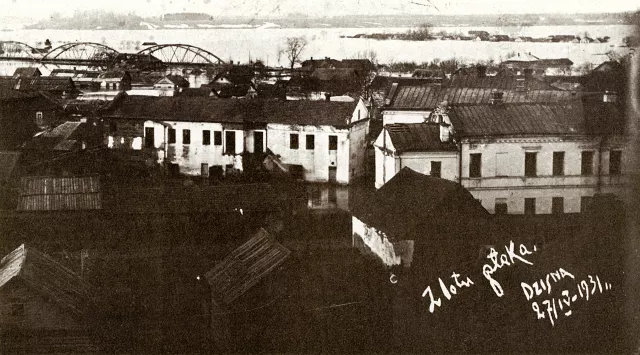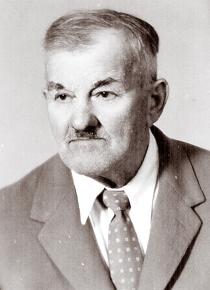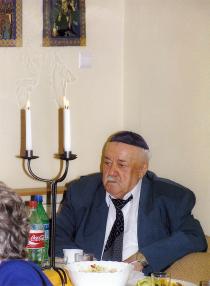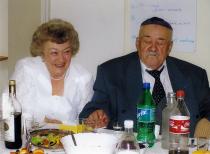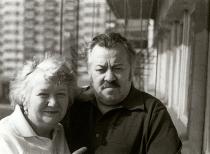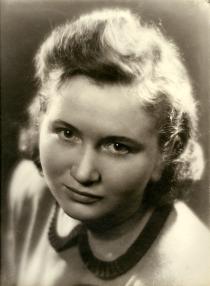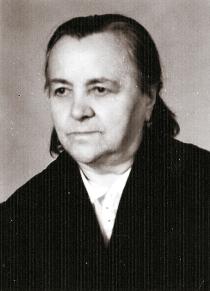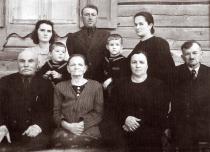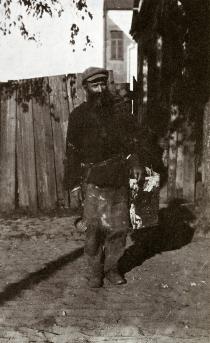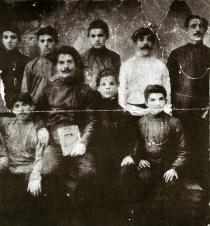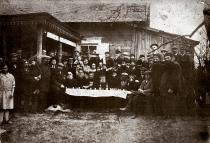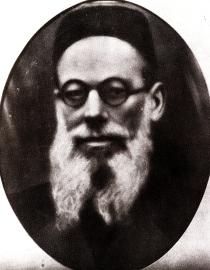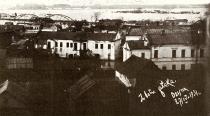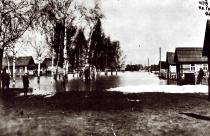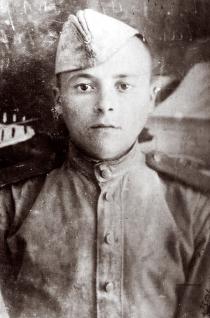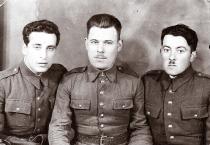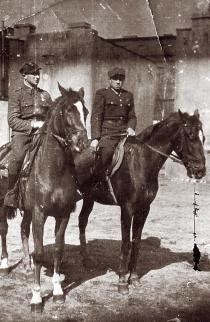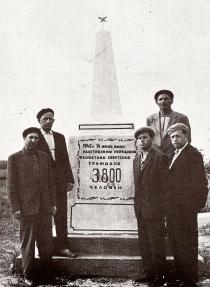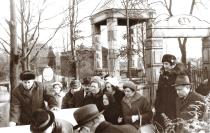Mr. Leon Solowiejczyk's home town
This is a photo of my home town. The photo was taken in Dzisna in 1931 and comes from the memory book about Dzisna and people who lived there before World War II. The inscription says: ?A bird's eye view. Dzisna.?
I was born on 25th March 1923 in a small town called Dzisna. The town of Dzisna is located on the river Dzisna, a tributary of Dzwina, in the Vilnius district. Dzisna itself was a town close to the border, there were two rivers. In the fall there was always mud. We, the kids, used to walk on these stilts. There were floods in the spring; the largest one was in 1931. On the street you could smell horse manure and so on, because there were horses and cows in every house. There were hills, rivers, lakes, valleys and forests in the area. But mostly it was flat. The area was quite swampy. There was moss, there were swamps, mud. Yes, like it is in Polesie. When someone 'went to the mosses,' there was no point in looking for him. [Editor's note: Mr. Solowiejczyk uses the phrase 'go to the mosses' in the sense of 'take one's life']. Only locals knew how to pass between those mosses, no one else would come back.
Supposedly, during the war partisans would hide in the swamps and when the Germans went looking for them the partisans were sitting in these holes which they had dug for themselves. When they had dug those holes there was water in them, but they took some pine branches and covered the holes with them. They could see those Germans looking for them, but the Germans couldn't see them.
There was no industry in Dzisna, no factories. There was a city hall, a church, eight synagogues, schools, a post office. There was a hospital, stores and restaurants. There was electricity in the town, from this turbine; lights would be turned on after it turned dark. The central area in the town was the market square. There, next to the market square, there was the 'birzha' [Russian: bazaar]. It was something like a bazaar. It was this place higher up, at the intersection of the streets and you could get everything done there. If you didn't have work, you'd go there in the morning, because everything was private, so all those without work went looking there. They'd find out where they could get a job and when there was nothing, if you came before 10am you could get a piece of bread and some cold water: you'd dip it in salt and eat it.
You could also marry your son or daughter off there, buy a horse, a cow, everything? There were these people there, they were called 'maklery' [incorrect Polish: stockbroker] and they could do anything. This 'makler' could marry a daughter off, he'd say: 'Well, this is such a nice girl, rich, she's got this and that?' that's how he'd describe her. He had these glasses, monocles. He'd drive around all the neighboring towns in a horse-drawn cart, he could do anything. You could borrow money from him, buy or lease an orchard, or land from the squire - 20, 30 hectares of land for 10, 15 years.
